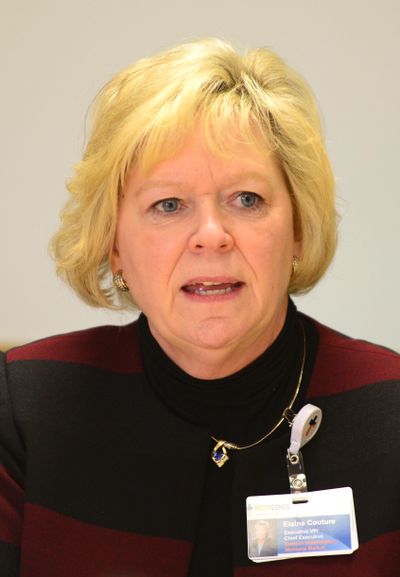Keeping people insured top concern of Spokane health care execs if Trump repeals Obamacare

The Affordable Care Act has helped more than 750,000 Washington residents get health insurance coverage, and that’s a gain health care providers hope to see continued in the Trump administration.
“Our No. 1 priority is to try to protect the coverage expansion that’s taken place. That’s the main message we’re driving home,” said Chris Bandoli, the Washington State Hospital Association’s senior vice president for government affairs. “You can’t just throw 750,000 Washingtonians off health care coverage and expect it to be OK.”
Both hospitals and consumers have benefited from the higher numbers of insured residents, which occurred primarily through the expansion of Medicaid coverage in the state, local providers said.
For hospitals, higher rates of insured residents led to millions of dollars of reductions in annual charity care costs. For patients, it means better access to care, from family doctors and pharmacists to specialists and emergency rooms.
“People now have an insurance card. They have a right to be seen,” said Elaine Couture, chief executive for Providence Health Care in Spokane.
As the nation moves forward with a discussion on whether to repeal or replace the Affordable Care Act, which President-elect Donald Trump vowed to do during the campaign, Providence and others are looking for stability for patients and also stability in reimbursements, said Kristen Federici, Providence’s director of government relations.
“We think health care is a human right,” she said. “We want to make sure that people have it.”
But it’s unclear what might emerge from the new administration. In interviews after the election, Trump indicated that parts of the health care reform might continue, including provisions that allow young adults to stay on their parents’ insurance coverage.
For the Providence system, the Affordable Care Act has had a mixed financial impact. While the amount of charity care has dropped, local Providence hospitals are seeing more and sicker patients, which has cut into revenues. They are patients who delayed getting treatment for issues such as diabetes or kidney problems when they didn’t have insurance.
As a result, “there’s been a lot of front-loading of the system,” said Dr. Jeff Collins, Providence’s chief medical officer for Eastern Washington and Western Montana.
Many of those sicker patients are still being seen in hospital emergency rooms, he said. Over time, as newly insured patients become more savvy health care consumers, they’ll be seen at clinics, where chronic conditions can be managed to reduce the need for hospital care, he said.
Medicaid payments only provide a partial reimbursement for care at hospitals and clinics, which also has cut into revenues, said Couture, Providence’s chief executive. And bad debt continues to be an issue for hospitals, she said.
Some of the newly insured patients under the ACA have plans with high deductibles, which they’re unable to pay, she said. So, even though they have insurance, they’re still accruing medical debt.
Continuing health coverage for the newly insured is also a priority at CHAS Health, which runs a network of local primary care clinics, said Aaron Wilson, the chief executive.
CHAS Health sees patients regardless of their ability to pay. Before Obamacare, about 40 percent of the patients were uninsured, a figure that has dropped to about 8 percent since the law took effect.
With the ability to access care on a regular basis, CHAS staff sees patients being more proactive in their treatment, Wilson said.
“People wouldn’t delay care, they would come in earlier to see us,” Wilson said.
CHAS staff also noticed the patients were more diligent about taking their medications because they could afford their prescriptions. And their ability to get in to see specialists had improved, Wilson said.
In the past, it was difficult for CHAS to give referrals to specialists, most of whom have limited slots for charity care, he said.